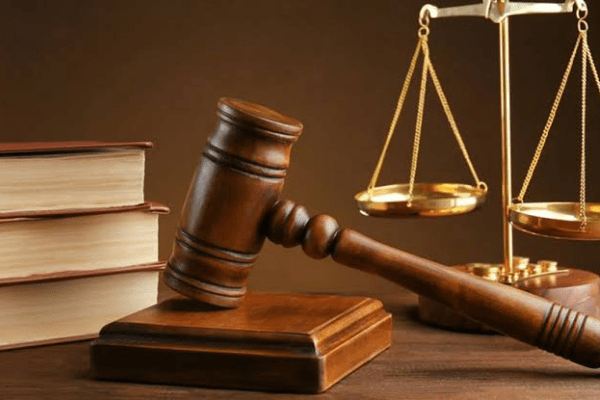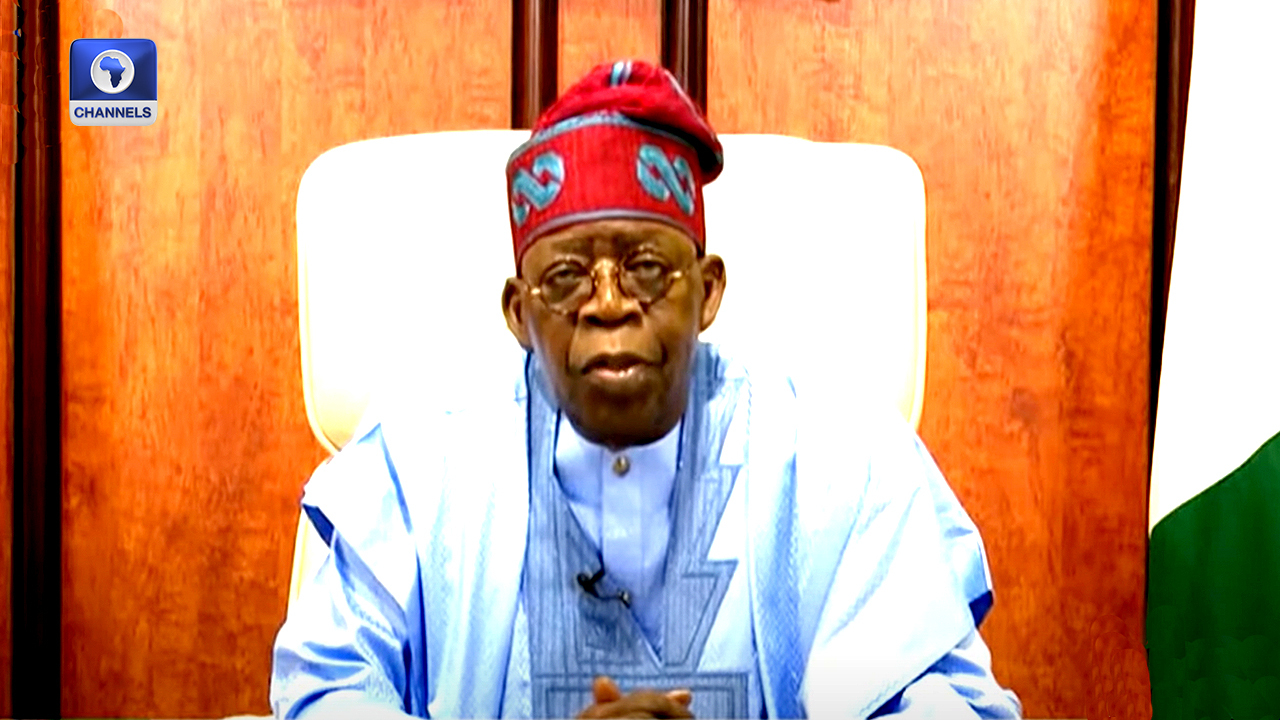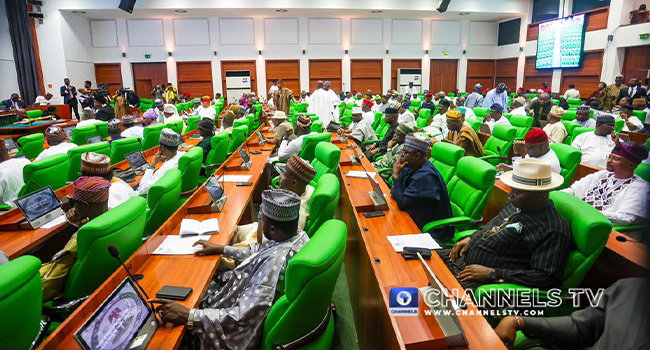Amid the angst across Nigeria following the rejection of obligatory electronic transmission of election results by the National Assembly during its amendment of the Electoral Act, the Independent National Electoral Commission (INEC) has hinted it is working on procuring at least 200,000 electronic voting machines.
The commission said by its own processes and procedures, it is dealing with four components of Electronic Voting System (EVS): Electronic Voter Register (EVR), Electronic Voting Machine (EVM), Electronic Voter Authentication (EVA) and Electronic Transmission of Results (ETR).
Speaking exclusively with LEADERSHIP in Abuja, INEC’s national commissioner for information and voter education, Festus Okoye, said the commission had invited 49 companies for a Request for Information (RFI) demonstration and that it was yet to shortlist any company for the purposes of supplying any of the machines.
Okoye said, “The commission is working on the estimates for these machines and we are working at procuring at least 200,000.’’
He noted that the commission had been uploading Polling Unit Results with its Smart Card Readers, the Z-pad and other electronic solutions.
“The commission is embarking on the Continuous Voter Registration exercise using a new Voter Enrolment Device (IVED) that captures fingerprints and facials and also has the capacity for authentication,’’ he said.
Okoye, who did not mention the cost of the machines, stated that the commission was working on a package that contains the four elements of the electronic voting system.
A report by the New York University School of Law, Brennan Centre for Justice on the ‘Cost of Replacing Paperless, Computerised Voting Machines in the United States said it would fall in the range of $130 million to $400 million.
However, the Brennan Centre said this estimate is specific to the cost of the machine itself and does not include other items related to using and maintaining machines over time that may be included in a voting machine contract.
LEADERSHIP reports that INEC had already acquired many these machines and their appurtenances and used them in Edo and Ondo governorship elections, and in several other off-season legislative elections across the country. If electronic transmission of results is not approved in the new electoral act, the machines would become redundant and waste away, with all the investment in them, running into hundreds of millions of dollars
The National Assembly had in 2018 approved the sum of N189 billion for the 2019 poll, and some Nigerians are of the view that INEC might spend about $300 million or more to purchase at least 200,000 electronic voting machines for the 2023 elections.
So far, a handful of companies including Smartmatic, Dominion and Election Software and Systems create and sell the hardware and software that tally and tracks votes and the lucrative support contracts to keep them going. The companies are a sizable global business that Wintergreen Research estimates will be worth $8 billion by 2026.
This is because, although elections are ultimately a public affair, the mechanics of democracy are, in practice, powered by private enterprise.
LEADERSHIP reports that the passage of the 2021 electoral amendment bill by the National Assembly, especially clause 52(3) seeking electronic transmission of election results by INEC, has continued to generate controversy among Nigerians who see the process as one of the ways of ensuring free, fair and credible elections.
All 52 senators of the ruling All Progressives Congress (APC) voted against the obligatory transmission of election results, while 28 voted for it during the clause-by-clause consideration of the Electoral Act Amendment Bill 2021. A total of 28 others were absent during the voting process.
Meanwhile, the national chairman of the African Democratic Congress (ADC), Chief Ralph Okey Nwosu, has expressed fear that the recent rejection of electronic transmission of election results by INEC as proposed in the new amended Electoral Act by the National Assembly would spark a revolt by the masses ahead of the 2023 general election.
He also accused the federal government-controlled All Progressives Congress (APC) of having designed a scheme to shore up its numerical strength by coercing all corrupt politicians to join the party, or face prosecution.
Chief Nwosu told LEADERSHIP in Awka, the Anambra State capital, yesterday that by rejecting the proposal in the new amended Electoral Act, as passed recently by the Senate for INEC, to adopt electronic transmission of election results, members of the Upper Chamber of the National Assembly have shown that they are against allowing the votes of the electorate to determine the outcome of elections.
electronic transmission of election results, members of the Upper Chamber of the National Assembly have shown that they are against allowing the votes of the electorate to determine the outcome of elections.
New Bill Unbundles INEC, Creates Electoral Offences Commission
He said, “I will not be surprised if there is a revolt by the masses tomorrow because people are watching what they are doing and a lot of people are not happy.”
He told LEADERSHIP that his party ranked the third most popular political party in the country after the ruling APC and Peoples Democratic Party (PDP) but lamented that his party had lost some of its lawmakers to the APC because the ruling was coercing political officeholders to join the party so as to be saved from corruption prosecution.
He said: “During the 2019 general election, we came third in terms of the number of votes cast for political parties in the entire country. ADC is the party that got the third highest votes.
“We got 15 House of Assembly members, and save for the crooked nature of our system, ADC should have gotten about five governors. We also got seven House of Representatives members, but unfortunately, we lost two.
“You know the Nigerian system, politicians go into office and the corrupt ones among them soil their hands, and the next thing is, they want soft landing, and APC is ever ready to provide that.
“This advert APC is doing everywhere – saying once you join their party, your sins are forgiven, I find it very bizarre. They don’t mind how corrupt you are, they just want you to join their party. Adams Oshiomhole (former APC national chairman) was the first to say that, and they have been advertising it. So, I think more politicians, especially the corrupt ones, will still move to APC,” the ADC national chairman stated.







